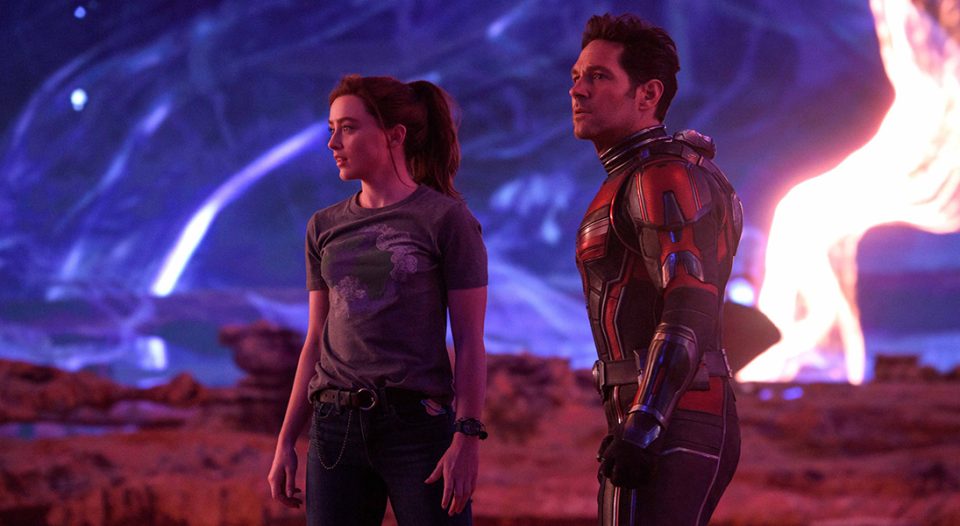Ant-Man doesn’t sweat the small stuff. Even when he’s trapped in a prison cell in the mysterious other world known as the Quantum Realm, staring down his purple-and-green-suited captor, Kang the Conqueror, the superhero remains undeterred.
“You’ve made a big mistake,” Ant-Man tells Kang, pausing for full effect. “I’m an Avenger.”
“Oh, an Avenger,” Kang responds, himself pausing, but not to register intimidation. “Have I killed you before?” he asks, the question barely disturbing his indifferent visage. “They all blend together after a while.”
Kang’s response is quite a blow to Ant-Man, who has worked hard to reach this unlikely point. When we first met Ant-Man in the 2015 movie bearing his name, he was just Scott Lang (Paul Rudd), an ex-con and divorced dad whose criminal record prevented him from even holding a job at Baskin-Robbins. Forced to turn back to his criminal ways, Lang inadvertently steals a suit that lets him shrink down to microscopic size, eventually helping the suit’s inventor, Hank Pym (Michael Douglas), prevent arms dealer Darren Cross (Corey Stoll) from using it for evil.
Since then Ant-Man has become a true superhero, saving the entire universe alongside Earth’s Mightiest Heroes, the Avengers. So it makes sense that the pint-sized protector would be a bit big for his britches at the start of the new film in the series, Ant-Man and the Wasp: Quantumania. The movie opens with Scott strutting along the street, getting high-fives from passersby and enjoying gifts from coffee shop managers. And it makes sense he would retain that confidence, even when he and his daughter Cassie (Kathryn Newton) meet Kang (Jonathan Majors).
In the Gospels we repeatedly see Jesus describe the power of the small and insignificant over the large and haughty.
It doesn’t take long for Scott to be cut back down to size. Directed by Peyton Reed and written by Jeff Loveness, Quantumania takes its heroes—who include the hero the Wasp, aka Janet van Dyne (Michelle Pfeiffer), and her daughter Hope (Evangeline Lily), who takes on her mantle—into a magical, unfamiliar world.
In the Quantum Realm a slime monster facilitates communication by giving itself to be consumed. In the Quantum Realm, Cross returns as a Mechanized Organism Designed Only for Killing (MODOK), a giant head with tiny appendages. He may have been a big deal in our realm, but Ant-Man is a small concern in the Quantum Realm.
As outrageous as Quantumania surely is, there’s something relatable in Ant-Man’s plight. We’ve all had circumstances where we think we’re large and in charge, only to find ourselves in a new situation that shrinks our enormous ego.
Fortunately that’s where God does the best work. Time and time again throughout Scripture, we see how God chooses the small over the large: a childless couple in a nomadic tribe become a chosen nation, an undersized farmhand (1 Samuel 16:7) succeeds tall King Saul (1 Samuel 9:1-2) to become Israel’s greatest monarch, a nondescript teenage girl (Luke 1:26-38) becomes the vessel by which God takes human form.
In the Gospels we repeatedly see Jesus describe the power of the small and insignificant over the large and haughty, as when he praises the contribution of a widow who has given two coins over the offerings of the rich: “She out of her poverty has put in everything she had, all she had to live on” (Mark 12:44).
Ant-Man is a big shot at the start of Quantumania. But it’s by receding—in ego and in physical size—that he’s able to save the day. That’s where he’s freed from relying on his prior achievements and allowed to find new ways of doing good.






